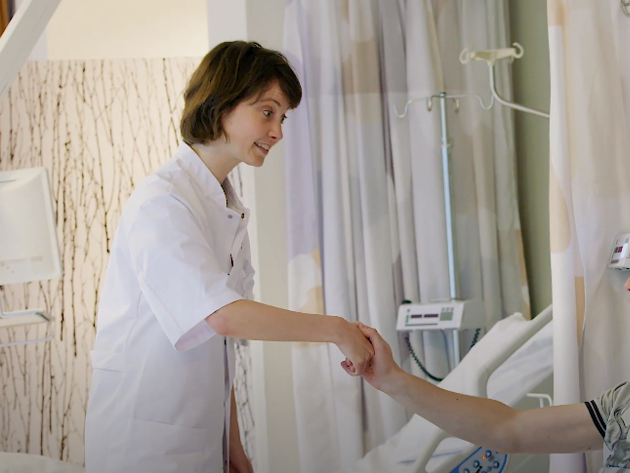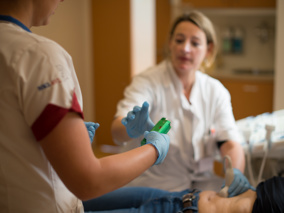Basal cell carcinoma
Basal cell carcinoma or basal cell cancer is the most common form of skin cancer in the Netherlands. Basal cell carcinoma usually occurs on the face, head or neck. But it can also occur in other parts of the body. Basal cell carcinoma usually occurs in men and women over the age of 40. The tumor usually grows slowly.
On this page you can read more about the symptoms, examinations and treatments for basal cell carcinoma.
More information about basal cell carcinoma
Causes of basal cell carcinoma
Sunlight is the biggest risk factor for the development of basal cell carcinoma. Previous X-ray radiation can also lead to a basal cell carcinoma in the irradiated area later on. In a small number of people, hereditary predisposition plays a role.
Symptoms of basal cell carcinoma
Basal cell carcinoma often does not cause any symptoms. Sometimes the skin may be itchy or tender. Basal cell carcinoma can look different ways. Usually it starts as a smooth, glassy lump in which small blood vessels can sometimes be seen. The lump can also be brown in color. After a while, this lump can open and bleed. Then an ulcer develops. On the body, basal cell carcinoma can look like eczema. The lump can itch and be sensitive, but it doesn't have to be.
Metastases of basal cell carcinoma
Basal cell carcinoma almost never metastasizes to other parts of the body. The tumor usually grows slowly and often stays in the same place.
Hereditary basal cell carcinoma
With the hereditary disease Basal Cell Neevus Syndrome (BCNS), the risk of skin cancer is greater.
Another name for this disease is Gorlin syndrome or Gorlin-Goltz. People with this disease often develop multiple forms of basal cell carcinoma. This skin cancer usually starts at a young age, often under the age of 20. Treatment is often done with hedgehog inhibitors.
Waiting
We want to inform you as well as possible about the waiting time per condition. We do this based on a prognosis of the current waiting list. The waiting time can vary from patient to patient for various reasons. Your attending physician will give you more information during your outpatient consultation.
-
12 days
First appointment
This is approximately how long it will take until you have your first appointment
-
12 days
Second opinion skin cancer
This is approximately how long it will take before you come in for a second opinion at the NKI
 nl
nl

